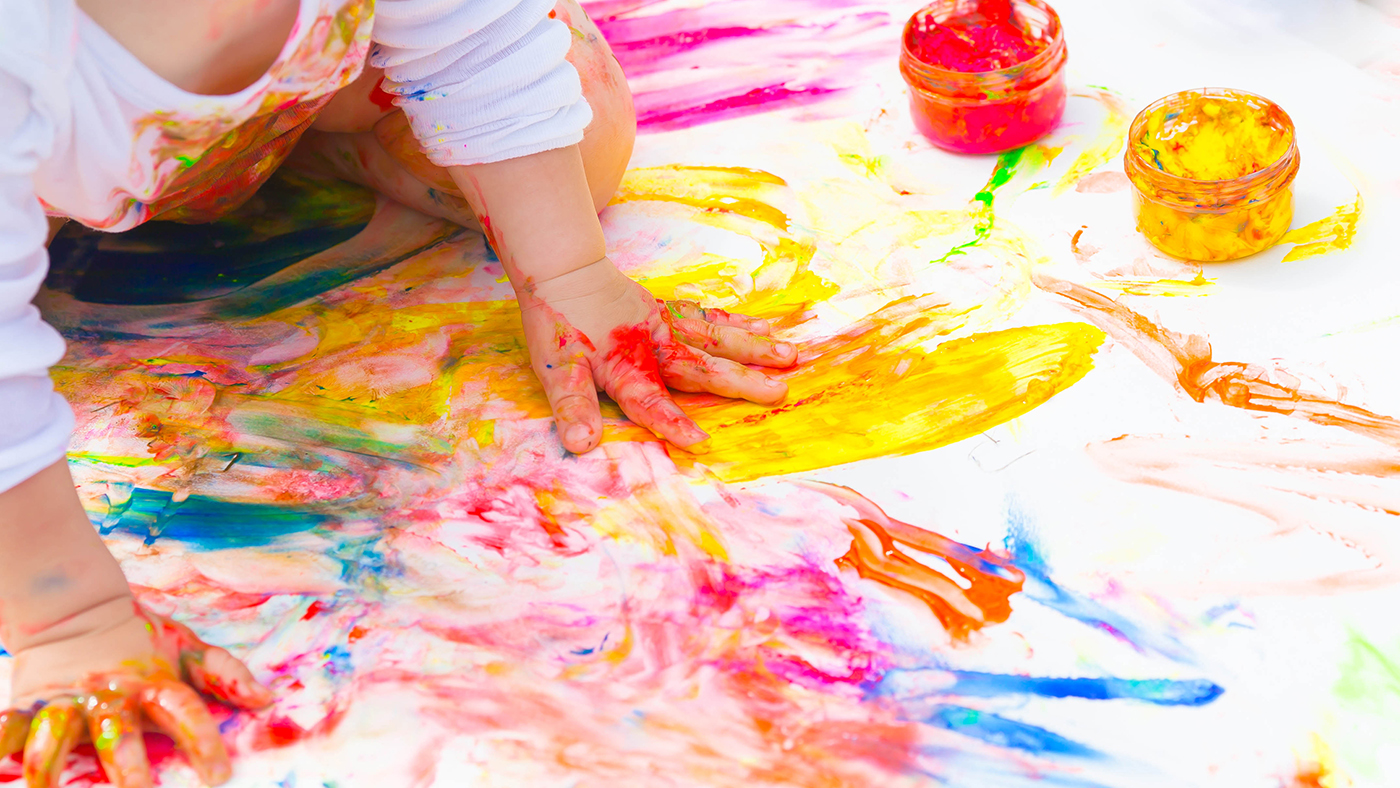Not sure about messy play? The benefits and things to think about to get you started

Messy play might not be your first choice of activity but can be great for your toddler. If you’ve avoided it so far, you aren’t alone, but perhaps there could be a way for you to enjoy getting messy together?
Messy play can give your toddler time to explore without needing to make something – it’s not setting up a ‘craft’, but finding ways to let your toddler play with different materials and discover what they do.
This kind of freedom allows their curiosity to thrive, and it drives them to carry on investigating. They may not know the answers, but they can conduct their own research. The idea of endless possibilities is fascinating for toddlers.
How messy play benefits learning across the streams
Fine motor – Exploring different textures and materials and grabbing paintbrushes, sticks, spoons or other tools strengthens muscles and bones.
Gross motor – Toddlers use their core strength, hand-eye coordination and gross motor muscles to push, pull, stretch and manipulate materials.
Language – Listening to words when adults narrate their toddler’s play develops communication and language skills.
Cognitive – Toddlers explore capacity, weight and measurement as they pour, fill and empty. When toddlers are in an environment where there are no wrong answers, their thinking abilities develop, they begin to understand cause and effect, and may even start to solve problems.
Social and emotional – Messy play helps many toddlers calm and control their emotions.
Sensory – Toddlers use all their senses to explore and learn.
Hints and tips for messy play:
If your toddler doesn’t want to get messy, don’t force them.
Start with dry materials for those who like to stay clean – dry leaves, dry sand, cotton balls, pom poms. (Always be aware of choking hazards and supervise messy play closely.)
Explore with them – and have fun. If you aren’t keen on getting messy, your toddler might notice and be less likely to explore.
Think about where and when – you might decide using paint, glue and other messy play is something you prefer to do outside, or only at a toddler group if you go to one.
Be prepared. Have a bath ready, towels prepared, old clothes (or no clothes) and cover the floor or table.
Remember to think about the sensory experiences offered through everyday life.
If you and your toddler really don’t want to paint or play in sticky pictures, then bathtimes, mealtimes and walks on a rainy day can all give your toddler some time to explore textures in the same way messy play does.
They might prefer a stick in a muddy puddle to a paintbrush and paint... and that’s ok!